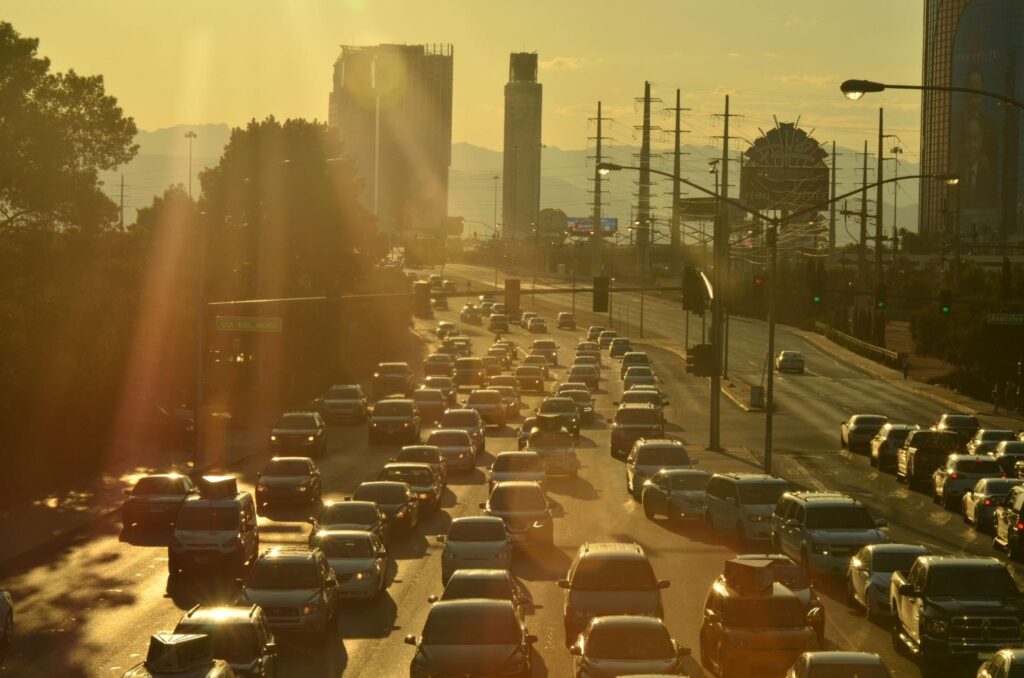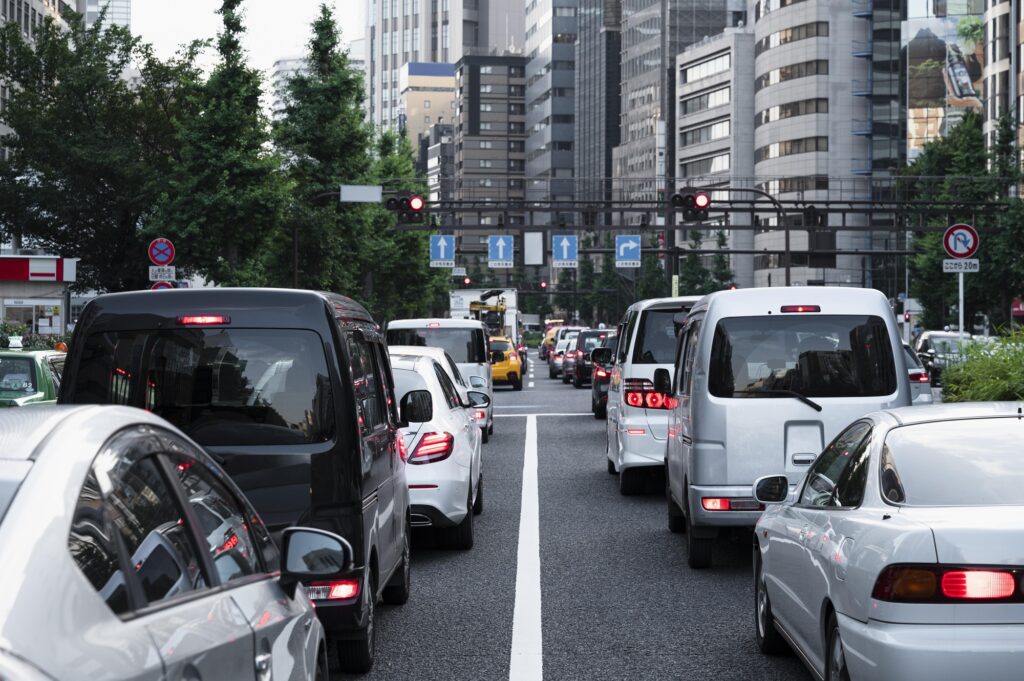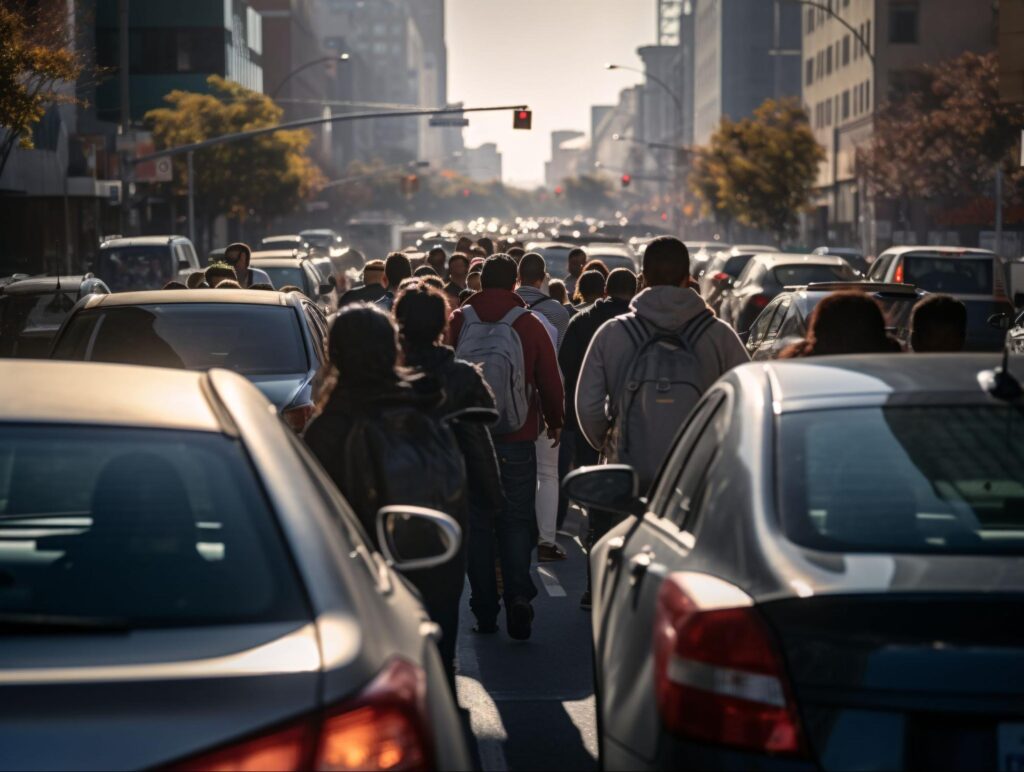
Atlanta, a city renowned for its rich culture and booming economy, is also infamous for its traffic congestion. Whether you’re a local or a visitor, understanding the worst times to drive through Atlanta can save you hours of frustration and stress on the road.
Navigating Atlanta’s busy streets requires strategy, from peak rush hours to the impact of special events. This guide explores the times you should avoid and offers tips on how to make your travels smoother and more efficient.
Understanding Atlanta’s Traffic Patterns
Atlanta, known for its vibrant culture and diverse economy, also faces significant traffic challenges. Understanding the city’s traffic patterns is crucial for residents and visitors. Traffic in Atlanta is a complex ecosystem influenced by various factors, ranging from the city’s geography to human behavior.
One of the primary reasons for enduring congestion in Atlanta is the sheer volume of vehicles on the road. The city’s expansive layout and extensive highway system invite commuters from nearby suburbs, resulting in heavily congested areas.
This contributes to an environment where, at times, simply getting from point A to point B becomes a monumental task. The challenge is exacerbated by the city’s unique topography, which includes hilly terrain and numerous rivers. Constructing alternative routes is difficult, often leading to bottlenecks in key areas.
If you ever find yourself navigating legal matters stemming from Atlanta’s traffic troubles, a reliable legal partner like Howe Law can help you manage these challenges with confidence and ease.
Peak Hours in Atlanta
The peak hours in Atlanta, much like in other metropolitan areas, are typically experienced during the morning and evening rush hours. Morning rush hour often commences around 6:30 AM and stretches until about 9:30 AM.
During this time, the influx of commuters heading to work creates bottlenecks across major thoroughfares. Many residents rely on public transportation options like MARTA, but even these systems can become overcrowded during peak times, leading to passenger delays and discomfort.
Evening rush hour usually follows a similar pattern, commencing around 4:00 PM and continuing until 7:00 PM. However, traffic can be unpredictable, and some areas experience congestion even outside of these peak times due to accidents or road conditions.
Being mindful of these hours can help motorists plan their journeys more effectively and avoid the worst of the traffic. Moreover, the rise of remote work has altered some commuting patterns, with more people traveling at non-traditional hours, yet the overall volume remains a pressing issue.
Special Events and Traffic Surges
Atlanta hosts many special events throughout the year, including festivals, concerts, and sporting events. These occasions draw large crowds, leading to significant traffic surges.
Major venues such as the Mercedes-Benz Stadium or the Georgia World Congress Center often become epicenters of congestion during events. The city’s vibrant arts scene also contributes to traffic spikes, with events like the Atlanta Film Festival and Music Midtown attracting thousands of visitors who flock to the city.
For instance, sporting events can create a ripple effect, causing traffic to swell around the venues and surrounding neighborhoods. Planning ahead and checking event calendars can help avoid unexpected delays.
Additionally, local authorities often implement traffic management strategies during these events, such as road closures and detours, which can further complicate travel plans for those who cannot attend.
Seasonal Traffic Changes in Atlanta
Traffic patterns in Atlanta also exhibit seasonal variations. During the summer months, the heat can deter some commuters from traveling, resulting in decreased traffic volumes. Conversely, the holiday season brings a surge in traffic, particularly around shopping centers and recreational areas.
The influx of tourists during events like the Peachtree Road Race or the Atlanta Dogwood Festival can also contribute to increased congestion as visitors explore the city’s attractions.
Although winter weather is rare, it can cause significant disruptions. Atlanta’s infrastructure is not primarily designed for snow or ice, leading to hazardous conditions and unusually high congestion during inclement weather.
The infamous snowstorm of 2014 serves as a stark reminder of how quickly traffic can come to a standstill. Staying informed about seasonal trends can help drivers make better decisions regarding their travel plans.
Furthermore, local news outlets and traffic apps provide real-time updates that can assist commuters in navigating the city’s often unpredictable roadways.
Factors Contributing to Atlanta’s Traffic

Several factors contribute to the unique traffic situation in Atlanta. These influences intertwine, creating a landscape that challenges even the most seasoned drivers. Understanding these elements is paramount to navigating the roads successfully.
The Role of Commuting
Commuting is a leading contributor to Atlanta’s traffic woes. Many residents travel from suburban areas, such as Cobb County or Gwinnett County, to the city for work. The daily influx of commuters adds significant pressure to the roadways, particularly during peak hours.
Moreover, the number of people working in Atlanta’s central business district exacerbates traffic. Many employees prefer private vehicles over public transportation, leading to crowded roadways.
A cultural shift toward remote work could potentially alleviate some of these issues in the future. However, even with the rise of telecommuting, a substantial number of individuals still rely on their cars, contributing to an unending cycle of congestion.
This reliance on personal vehicles is further compounded by the lack of robust public transit options that can efficiently serve the sprawling metropolitan area.
Construction and Road Work
Ongoing construction and road work in Atlanta also contribute to traffic congestion. Major renovation projects often cause lane closures and detours that result in significant delays for drivers.
While these improvements are necessary for enhancing the city’s infrastructure, the timing and management of these projects can greatly affect traffic flow.
To avoid frustration, drivers should remain aware of upcoming construction sites and plan alternate routes when possible. Local news outlets and traffic apps can provide real-time updates on construction statuses and potential delays.
Additionally, the city’s efforts to modernize its roadways often coincide with major events, such as concerts or sports games, further complicating traffic patterns. As Atlanta continues to grow, the challenge of balancing necessary infrastructure improvements with commuters’ daily demands will remain a pressing issue.
The Impact of Weather on Atlanta’s Traffic
The weather plays an undeniable role in influencing Atlanta’s traffic conditions. Rain can lead to hazardous driving conditions, increasing the likelihood of accidents. Traffic can become compounded as drivers are forced to slow down for safety, often causing congestion well beyond the initially affected area.
Moreover, extreme weather events, such as storms or flash floods, can completely incapacitate major routes, forcing detours and resulting in heavy traffic. Knowing the weather forecast and establishing contingency plans can be invaluable for drivers traversing Atlanta roads.
The city’s geography also plays a role. Its hilly terrain can exacerbate issues during adverse weather, making some roads more treacherous than others. In addition, the “Atlanta snow” phenomenon has become infamous; even a light dusting can paralyze the city due to the city’s lack of preparedness for icy conditions.
This unpredictability adds another layer of complexity to the already challenging traffic landscape, highlighting the need for drivers to remain vigilant and adaptable in their commuting strategies.
Navigating Atlanta’s Highways During Peak Times
Navigating Atlanta’s highways during peak times can be daunting. However, with the right strategies, drivers can minimize stress and maximize efficiency on their journeys. Familiarity with key highways and their traffic conditions is essential.
Tips for Driving on the I-285
I-285, also known as the Perimeter, encircles the city and serves as a critical artery for many commuters. The interstate often experiences heavy traffic, particularly during rush hours. To navigate this highway effectively, drivers can consider the following tips:
- Use traffic apps to check real-time congestion and delays.
- Consider alternative routes when traffic is heavy.
- Travel during off-peak hours whenever possible.
These strategies allow drivers to significantly ease their commutes along the I-285. Additionally, it’s worth noting that the I-285 is lined with various attractions and amenities, from shopping centers to parks, which can serve as useful pit stops during longer journeys.
Familiarizing oneself with these locations can provide a welcome break from the monotony of traffic, allowing drivers to recharge before continuing their travels.
Dealing with Traffic on the I-75
The I-75 corridor connects the northern suburbs to downtown Atlanta, making it a crucial roadway for daily commuters. It is notorious for its heavy volume, especially during rush hours. To effectively deal with traffic on the I-75:
- Remain patient and avoid aggressive driving behaviors.
- Utilize the HOV (High Occupancy Vehicle) lanes to bypass congested areas.
- Pay attention to electronic billboards offering real-time traffic updates.
Implementing these strategies can help to mitigate the frustrations associated with driving along this busy interstate. Moreover, drivers should consider the importance of carpooling, which allows for the use of HOV lanes and creates a sense of community among commuters.
Sharing rides can make trips more enjoyable. Passengers can engage in conversation or simply relax while someone else takes the wheel.
Strategies for the I-85 and I-20
I-85 and I-20 intersect with key areas of Atlanta and are equally subjected to heavy traffic. For drivers navigating these routes, several strategies can enhance travel experiences:
- Stay informed about road conditions and incidents ahead of your route.
- Plan for potential bottlenecks that are historically problematic.
- Utilize local knowledge to take less-traveled side streets when necessary.
WNavigatingI-85 and I-20 become less daunting with these approaches Additionally, understanding the city’s layout can provide drivers with insights into the best times to travel to specific destinations.
For instance, knowing that certain neighborhoods have unique rush hour patterns can help in planning trips that avoid peak congestion. This strategic awareness can transform a stressful drive into a smoother, more predictable experience, allowing for greater flexibility in daily schedules.
Alternatives to Driving in Atlanta

While driving may often be the easiest option, Atlanta offers several alternatives that can save time, reduce stress, and alleviate the city’s congestion. Residents and visitors are encouraged to explore these options.
Public Transportation Options
Atlanta’s public transportation system, MARTA, serves as a viable alternative for many commuters. With extensive rail and bus services, MARTA can transport individuals to various locations throughout the city and surrounding areas. Benefits of public transportation include:
- Reduced travel costs compared to driving and parking.
- Less stress and the opportunity to relax during commutes.
- The ability to contribute to lower emissions and environmental sustainability.
By utilizing public transportation, commuters can significantly decrease their reliance on personal vehicles, helping to alleviate congestion. Additionally, MARTA has been expanding its services to include more routes and improved schedules, making it even more accessible.
Recent initiatives have also focused on enhancing the safety and cleanliness of transit facilities, ensuring a comfortable experience for all riders. With the integration of mobile ticketing options, passengers can easily plan their journeys and stay updated on service changes, further encouraging the use of public transport.
Biking and Walking Routes
For those living or working near downtown Atlanta, biking or walking can serve as excellent alternatives to driving. The city has made strides in developing bike-friendly infrastructure, including designated bike lanes and bike-sharing programs.
Walking promotes personal health and allows people to enjoy Atlanta’s vibrant neighborhoods and scenic parks. Exploring these options can result in a more pleasant commute and a more sustainable lifestyle.
Moreover, the city has implemented several initiatives to create pedestrian-friendly zones where residents can stroll without the worry of heavy traffic. Events like “Atlanta Streets Alive” encourage community members to experience the city on foot or by bike, showcasing the benefits of a car-free lifestyle and cultivating a sense of connection among residents.
Carpooling and Rideshare Services
Carpooling and rideshares also provide smart alternatives to navigating traffic in Atlanta. These services allow individuals to share rides with others, reducing the number of vehicles on the road. Many commuters find rideshare apps convenient and efficient for connecting with others traveling in the same direction.
Engaging in carpooling conserves fuel and fosters a sense of community. Options like HOV lanes may provide faster routes for carpoolers, making this choice even more attractive.
Furthermore, companies and organizations in Atlanta are increasingly promoting carpooling programs as part of their employee benefits, offering incentives such as preferred parking spots or subsidies for those who choose to share rides.
This helps reduce the number of cars on the road and encourages a culture of collaboration and camaraderie among coworkers, contributing to a more connected community overall.
Conclusion
Driving in Atlanta can be challenging, especially during peak hours or special events. However, understanding traffic patterns, factors contributing to congestion, and how to navigate the roadways can significantly enhance the driving experience.
Furthermore, exploring alternatives, such as public transportation, biking, and ridesharing, can help reduce the overall traffic problem in this bustling city. By utilizing these strategies, both residents and visitors can enjoy more fluid and efficient travel in Atlanta.
If you have traffic-related legal issues or need help navigating the city’s roads, Howe Law is here to help. Call 888-559-7033 for a free consultation, available 24 hours a day, 7 days a week. For more information, visit Howe Law Contact Us.
Related Articles


























































